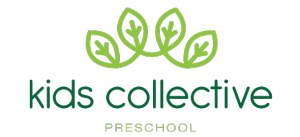As children pass from carefree infancy to meaningful childhood, they come through a set of developmental stages that are crucial for their personal becoming. Throughout these challenging and strenuous years, there are parents who are children’s best learning models. They are one and only people who love unconventionally, care selflessly and spend their lives to build their children’s ones. Being first and lifelong educators, parents introduce children to challenges and experiences that encourage them to develop on their own and learn from interaction with the environment.
The Role of Parental Involvement
Parental engagement in children’s learning from early years has a vital impact on kids’ developmental achievements, and continues to be meaningful, even when children reach adolescence and adulthood.
On the one side, a major role of parents is to provide physical facilities to help kids progress in learning. In this context, parents are to ensure supportive environment, where kids have access to learning activities and can plunge into their fascinating developmental journey.
On the other side, it is a matter of affective-emotional aspects that provide a powerful groundwork for kids to develop properly. Parents’ positive affection, love and warmth combined with responsiveness to children’s interests and sensitivities, ensure support necessary for multiple aspects of kids’ learning. Such affective-emotional behaviors facilitate trust between children and parents, which helps kids deal with stress and novelty and extend learning to new experiences.
In all these ways, parental involvement in kids’ development is a way to:
- Build children’s self-esteem and confidence;
- Promote better behavior and social adjustment;
- Develop a positive attitude towards learning (and develop a higher level of educational qualifications later on);
- Strengthen parent-children relationships.
Ways to Help Children Succeed in Learning
One of the biggest challenges for early childhood educators is how to effectively engage parents in their kids’ learning. A great array of parent education programs were developed to make a positive impact on kids’ learning ability, both in a preschool education setting and outside the classroom.
Here are some basic tips to help parents embark on the right learning pathway with their kids:
• Show the best part of learning
Being children’s first and foremost role models in early childhood, parents’ responsibility is to ensure positive learning experience and show how engaging and insightful a learning process can be. These are key aspects to consider, when, at an early age, kids get introduced to exploring the nature, taking care of themselves, cooking, reading, counting. When children reach a preschool age, parents should help kids efficiently arrange their time and maintain their interest in exploring new things in a classroom and at home.
• Be aware of children’s learning styles
Children use different ways in which they learn and grasp new things. Some children belong to the group of visual learners who mostly rely on visuals in their learning experience. Others develop through hands-on activities and movements. There are also kids who learn best with their listening skills.
Whatever ways of exploring the world a child uses, it is a task of parents to find out the best ways for children to learn. With this in mind, adults can help kids stimulate their interest and explain complicated things by choosing the methods that work best for them.
• Adapt kids’ learning activities to everyday life
It is a crucial thing to make learning experience a meaningful part of kids’ everyday life. It comes down to some routine activities that children perform daily. For example, when kids are involved in cooking, it is a great way to master counting or discuss what a microwave or a mixer does. Kids need life situations to suggest ideas and test theories in practice.
• Support balanced development without over-scheduling
A vast array of activities a child is involved in is not a key to nurturing a smart and quickwitted person. If a kid is engaged in sports and dance activities, extra Spanish classes can be too much for him/her to grasp. Otherwise, all the activities will turn into a joyless race for survival with a plenty of negative outcomes. According to the Reggio and Montessori parenting program at our preschool, parents should see activities that children truly enjoy and build their learning process based on their core preferences and interests.
• Help kids take responsibility for learning
Learning should be a self-directed process, where children are responsible for their success and failure. As the Reggio and Montessori parenting program suggest, through engaging experience, kids become self-motivated and deeply engrossed in learning based on their intrinsic interest, rather than an idea of getting an award.
In tandem with educators, parents can create a supportive environment for optimal kids’ upbringing and development. Home is a sacred place, where children’s interest for learning is kindled and supported. The role of a preschool is to uncover kids’ innate capacities and find proper areas where these capacities can evolve naturally. Preschool and home setting complements each other, while making children’s learning process both seamless and fruitful.




